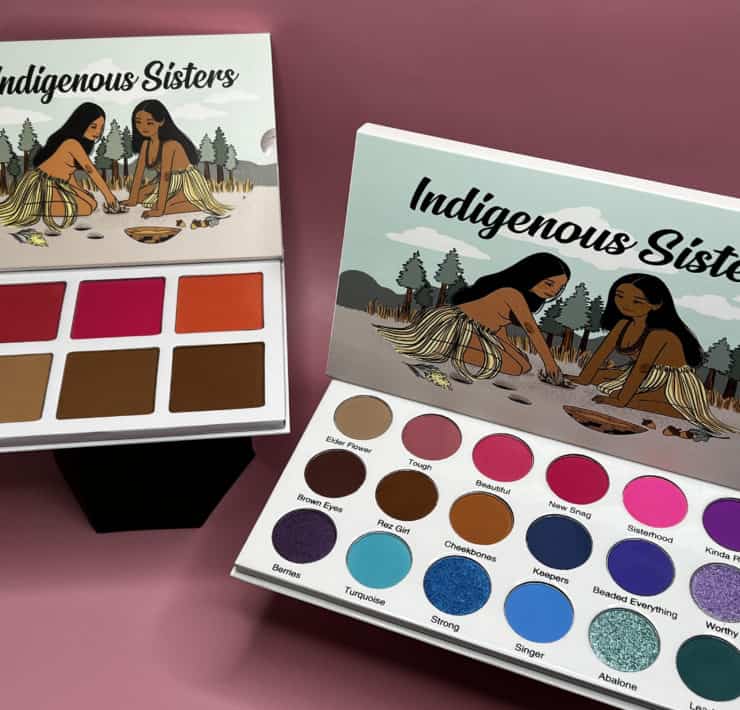
By Emily Clarke
The Southern California Native small business community is one of the most diverse, creative, and tight-knit groups I have come across in my time as a creator. When you sign up to be a vendor at a powwow or other tribal event, you can expect to be set up alongside artists, jewelry makers, apparel sellers, bead artists, booksellers, and even home chefs, many whomst have been selling their products and making connections at almost every local event for years. Most of the products you will find for sale are Native-centric, meaning mostly curated towards a Native audience or buyer. This is not to say that non-Natives cannot buy and enjoy these products, but that the main population of buyers are often Native. Take beaded earrings for example. Some bead artists think it is acceptable for non-Natives to buy and wear their work, but the majority of their buyers are still Native due to their lifestyles, cultural trends, etc. However, this is not an issue that everyone agrees on, nor is it the only discussion currently circulating the Native small business community.
Although tight-knit and welcoming, the Native small business community is also prone to gossip and judgment. Like any community, each one of us has our own opinions and morals that help guide us in our decisions and in the way we present ourselves as business owners. One of the main discussions currently circulating the community is the idea of non-Native business owners who create and sell Native-centric products. This issue is directly related to the recent rise of pretendians (pretend Indians) as well as the Indian Arts and Crafts Act of 1990. Although the answer to how to handle non-Natives selling Native products seems clear cut, in the Southern California Native community, there seem to be lots of blurred lines between what is deemed as “authentically Native” and what is not. There are small business owners who are enrolled in their tribe, there are small business owners who identify as descendants because they do not meet the requirements their tribe has chosen for membership, and there are small business owners who identify themselves as Native, but don’t have any strong ties to the community or any “proof” of their tribal identities. On top of all this, each and every member of the community has their own idea of what requirements a small business owner should meet in order to be able to truly deem their products as Native-made. To get more insight on the varying perspectives regarding this issue, I interviewed three anonymous, Native-identifying small business owners from the So-Cal and compared their views to my own.
Firstly, can you describe what kind of business you are? What do you sell? Would you categorize your products as Native-made? Why or why not?
Artist 1: “We are a Native owned business that sells beadwork, blankets, etc. I categorize my beadwork as Native-made, but the blankets I wouldn’t classify as such because they’re made in China. It’s tricky because the blankets and other household products we sell are “Native” items, but they are not technically made by Natives. But, our supplier offered to allow us to come up with designs exclusively for our brand, so if we do do that, it still won’t be Native-made, but it will be Native designed.”
Artist 2: “We are a Native woman owned business, my friend and business partner does graphic design for shirts, jackets, stickers, and embroidery for hats, and I do the beadwork and also stickers for the booth. We are 100 percent Native made as my business partner is Seminole from Florida & I am Mescalero-Apache from New Mexico. All our art work is produced by us and we even have our own silkscreen and do all the labor to produce products for our business.”
Artist 3: “I am a Native beadwork artist. Yes, I would categorize my products as Native made because I am Native and all my beadwork is handmade by me.”
I am a Cahuilla bead artist that sells mainly beadwork, but also some home products such as wax melts and holiday decor from time to time. I make everything myself, come up with my own product ideas, and do my best to create original work. Therefore, I would categorize my products as Native-made. However, much of the supplies I use to create my products is bought from mass manufacturers, therefore I cannot claim that the products are 100% Native-made or even 100% made by me. I do not make my own beads for example.
Are the majority of your buyers Native? Why do you think this is? What is your opinion on non-Natives purchasing and using / wearing Native products such as beaded earrings?
Artist 1: “The majority of our buyers are Native because we mainly sell at Native events, so that’s the majority of our customers. I’m not against non-Natives purchasing beadwork and supporting Native businesses. It’s not cultural appropriation, it’s appreciation. I don’t see anything wrong with them wearing our beadwork. At the end of the day, you’re supporting a small Native owned business, so I don’t see an issue with that.”
Artist 2: “Yes , the majority of our buyers are Native. I haven’t encountered too many non-Natives buying our products besides the stickers . The reason why I believe that is because most of the products say things like Native, Native pride, or have Native art or specific tribes like (Cahuilla, Luiseño, Kumeyaay, etc.). As a beader and as a Native woman I feel like earrings and jewelry are the only acceptable thing for non-Natives to wear that’s appropriate. I would never sell regalia items to Non-Natives. I have no issue selling Non-Natives beaded earrings because I would rather they buy authentic Native American art and support Native artists than to buy knock off beadwork from Target or Walmart that is mass produced and not authentic.”
Artist 3: “Yes, the majority of my buyers are Native. This is because my products target Native audiences. I think Natives wear Native-made jewelry to show support to Native owned businesses and also to represent our culture.”
I think my buyers are about 75% Native. When I first started vending at events, I was invited to a lot of non-Native small business fairs where my work sold relatively well to non-Natives. However, non-Natives always seem to be nervous to purchase and wear my work, so although a good amount of my audience on social media for example is non-Native, my customers are often Native identifying. I think there is a time and place for non-Natives wearing beadwork. I personally don’t have a problem with anyone of any racial background purchasing, wearing, and enjoying my beadwork. In fact, I encourage it. However, I understand that some bead artists create work that includes sacred materials, designs, colors, or even patterns that are important to their tribal background. In that case, those products are usually not made for non-Natives to wear. I always encourage non-Natives to simply ask the artist what their views are and what they are most comfortable with. However, it is my opinion that other Native products such as regalia, should never be purchased and/or worn by non-Natives.
How do you feel about non-Natives learning how to make Native arts and crafts (like beadwork)? How would you feel if they then sold the item they learned to make and made a profit? Does your opinion change regarding whether or not they plan to make a profit off the knowledge they are receiving?
Artist 1: “Europeans brought glass beads here for trade. I don’t think there’s anything wrong with non-Natives learning to bead, lots of people from other countries and cultures bead too. Like if I taught my non-Native friend to bead, and she shows me appreciation for sharing that skill, I don’t think there’s a problem. The real issue is when non-Natives learn to bead and then sell their beadwork at a Native event to Native people, that’s when it’s wrong. Saying it’s Native-made is wrong, but gearing it towards Native buyers is also wrong.”
Artist 2: “I feel like there are many different circumstances. For instance, is this non-Native adopted or married into a Native family? I know a White woman who was raised in a Native family and raised traditionally who works in her Native community and makes crafts. She however is transparent about not being Native at all and growing up loving and appreciating the culture, giving back to the community, etc . I have also shown friends in highschool who have asked about beading how to bead. There are a lot of Non-Native people that do Native crafts. For example, one of the biggest bead stores in So-Cal is owned by White hobbyist. I do not think it’s ok for non-Natives however to be profiting off of Indigenous/Native art or trying to pass it as Native art when they are in fact not Native. It is actually against the law.”
Artist 3: “I do not support non-Natives beading and selling for profit. To me it is a form of cultural appropriation and should not be practiced or sold by non-Native people.”
I don’t see any issue with non-Natives learning to make Native art such as beadwork, unless by enrolling in a workshop they are somehow taking away a Native person’s ability to learn. I also think if a non-Native wants to learn how to make specifically Native-style beadwork, they should absolutely be learning from a Native person. The main problem for me arises if those non-Natives then take the knowledge they were taught by a Native artists and use it to make a profit. As a writer, I feel like that’s just like when a non-Native writes a book from the perspective of Native characters, and then wins some big award for it instead of a book actually written by a Native person winning and being recognized.
Within our community, there seems to be the belief that there are varying “degrees of Nativeness.” Some small business owners are enrolled tribal members, others are descendents, and some identify as Native, but don’t have any tribal ties, therefore their identities are questioned. Do you think small businesses who sell Native products should have to be enrolled and/or have tribal ties to their community?
Artist 1: “I think if you’re a small business owner selling Native products, you should be enrolled or have your CDIB. It’s not fair when people who are enrolled tribal members have to be put on waitlists to sell at Native events when people who aren’t Native are prioritized over them. That’s not right.”
Artist 2: “Yes and no. It can be both beneficial and harmful. I do believe that the vendors should have tribal ties to their community, but their specific tribal community can be tricky because here in Southern California it’s extremely diverse, so while people may be connected to their “powwow communities, ” they are disconnected from their tribes back home. Then there are people that are Cali Native and who live on the Rez but are still disconnected from their culture pertaining to ceremony, language, songs, etc. I would love it if we could show proof of being Native with either tribal id’s or, for instance, if they are direct descendents. My children are Cali Native from their paternal side and direct descendents because they have to live on their reservation for five years to get their Per Capita and enrollment. My mother is an ICWA social worker in Orange County and a lot of her ICWA children have grandparents or parents enrolled and their children aren’t because enrollments are closed, which is common to a lot of tribes here in California, especially if the parents lose custody. Also, one of my best friends who is Cali native from Tule River has two children, both same parents, and the tribe denied one of her children to be enrolled but not the other. So I don’t 100% agree that you should have to be enrolled. It’s hard because I want that process to cut out Pretendians, but we have instances like this that can cut out direct descendents or tribal people who’s reservations have their rolls closed.”
Artist 3: “I do not think that Native small businesses should have to show tribal ID, but I do think they should have ties to their people or their land/practices. They shouldn’t be able to just identify as Native without having some kind of proof to back up their claim.”
I don’t think you should have to be enrolled to sell Native-centric products. However, I do think that you should be able to back-up your Native ancestry or your involvement within your tribal community with substantial evidence. It’s sad that I have to say that, but it’s the world we live in as Native people. I also believe that if you’re going to talk the talk, you need to walk the walk. If you are profiting off calling your products “Native-made,” therefore profiting off your identity as a Native person, as well as selling to the Native community, you also need to be conscious of your role in your community. Are you participating in cultural events and traditions? Are you making friendships and connections with your tribal people? Or are you just calling yourself Native when it’s time to make a profit?
Is it harmful for someone who is not truly Native to identify their products as Native-made? Why or why not? How does the influx of pretendian small business owners affect the Native small business community?
Artist 1: “Yes, it is harmful. That’s not fair to the people who actually have a tribal background who are also trying to run a business. I’m enrolled and have lived on the reservation my whole life and been involved with my culture, so when I sell something, yes I get paid, but that money ends up going back into the community and going back to other Native small businesses. That money is going to be useful not just to me, but in the Native community as well. Pretendian sellers affect us because we could lose out on a sale due to people shopping from someone who’s not Native. We went to sell at a powwow in LA and had a conversation about blanket prices with a non-Native seller who charges $25 more than us, and when we asked why he charged so much, he said, “Well, they pay it.” Our business is actually Native owned, and we’re the cheapest, especially compared to non-Native sellers who sell the same products. Non-Natives think they can rip off Native buyers because, “They get Per Capita so they should pay.” We base our prices off what we pay for the blankets, and the non-Native sellers pay the same thing, but jump the price up in order to rip off Natives. To me, that’s wrong because they’re going to Native events and selling their products for higher prices. I don’t want to rip off my own people, but I feel like they’re going to Native events to do just that. To rip off our people. Another time, we were talking to a non-Native small business owner who didn’t know anything about any of the local tribes, reservations, or events. She only knew what powwows were because she sold at them. On top of that, when she was leaving, she accused us of “Stealing everybody’s sales,” because we’re actually active in the community and have relationships with local customers.”
Artist 2: “Yes it is extremely harmful for non-Natives to identify their products as Native made for many reasons. Cultural appropriation is a huge issue and aside from cultural appropriation, they are taking business from actual Indigenous artist, their work, their families, and quite literally taking money from our children by taking up space in Native spaces. Personally as a vendor I do notice non-Natives buy a lot of items off of Pretendian vendors, specifically cheap stereotypical items that I think should be reviewed by the powwow vendor committees, especially when being sold by non-Natives. It’s extremely problematic when they are selling White Sage and dream catchers made in China or mass produced beadwork not made in the U.S.. It affects not only our businesses, but our community as a whole because then outside spectators think that it is ok to buy items like that or they think they are buying authentic when they aren’t.”
Artist 3: “Yes it is harmful. It is a type of cultural appropriation and takes away from the true authenticity of real Native-made products. It affects Native small businesses because it takes away profit from authentic owned Native business and spreads ignorance.”
Someone who is not Native claiming their products are Native-made is extremely harmful to authentic, culturally-involved Native small business owners. Although the Indian Arts and Craft Act made it illegal for non-Natives to sell Native products and advertise them falsely, there are still many Pretendians who get away with it. I think there is something extremely valuable about Native-made Native art. When you buy it from someone who is actually Native and who is actively involved in their tribal culture, it holds a certain wait and aura that you won’t find elsewhere. Supporting Pretendian small businesses not only hurts Native artists, but I also think it hurts the customer because they are not purchasing an authentic product that was made with love, good intentions, and cultural relevancy.




